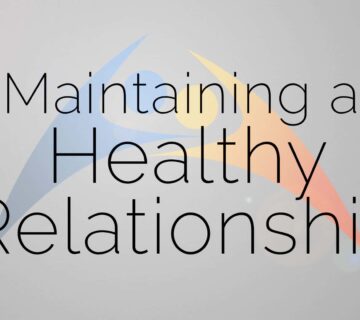Marriage is an ever-evolving journey that requires dedication, communication, and consistent nurturing to thrive. While falling in love often happens naturally, maintaining a healthy relationship demands ongoing conscious effort from both partners. Applying expert marriage advice and proven maintenance strategies can make a significant difference in bettering your relationship and sustaining it for the long term.
This comprehensive guide explores the best marriage advice on how to better your relationship, identifies what constitutes a healthy relationship, offers actionable self-improvement tips, and highlights effective relationship maintenance behaviors that couples can integrate into daily life to maintain closeness, satisfaction, and commitment.
Understanding Relationship Maintenance
Relationship maintenance refers to behaviors and strategies couples use to preserve their relationship’s desired quality and satisfaction over time. Research in social psychology identifies key maintenance behaviors—positivity, openness, assurances, task-sharing, and engaging social networks—that predict relationship success.
The Five Core Relationship Maintenance Strategies
-
Positivity
Positivity includes behaviors that create a cheerful, fun, and optimistic environment. This might mean refraining from criticism, expressing compliments, engaging in spontaneous activities together, or maintaining a joyful atmosphere even when stressed. Positivity helps partners feel appreciated and valued. -
Openness
Openness involves discussing feelings, thoughts, and plans related to the relationship. Sharing vulnerabilities and hopes creates emotional intimacy and a deeper understanding of each other’s perspectives. Openness is crucial for transparency and mutual support. -
Assurances
Assurance behaviors communicate love and commitment. This includes affirming the relationship’s importance, expressing dedication, and providing emotional security. Assurances help partners feel valued and reduce anxiety about the relationship’s future. -
Task-Sharing
Sharing responsibilities and household tasks equitably reduces stress and fosters teamwork. Fair task division promotes feelings of partnership and prevents resentment from imbalanced workloads. -
Social Networks
Engaging with mutual friends and family strengthens social support, provides shared activities, and reinforces identity as a couple. Strong social connections buffer stress and enrich relationship satisfaction.
Best Marriage Advice: Applying Maintenance Behaviors
Integrating these maintenance strategies into daily routines forms the best marriage advice for sustaining a healthy relationship.
-
Practice Positivity Daily
Make an effort to highlight each other’s good qualities, celebrate achievements, and bring humor into everyday interactions. Smiling, giving compliments, and avoiding destructive criticism build goodwill. -
Foster Openness
Set aside time for meaningful conversations where both partners can express concerns, dreams, and fears. Practice active listening and validate emotions to deepen connection. -
Offer Frequent Assurances
Regularly affirm your commitment through words and actions. Remind your partner they are loved, and the relationship is a priority. -
Share Tasks Fairly
Discuss responsibilities openly and adjust as needed. Show appreciation for each other’s contributions around the home and in life. -
Engage Social Circles Together
Spend time with shared friends and family. Cultivate support networks that reinforce your couple identity.
How to Better Your Relationship with Self-Awareness
Healthy relationships begin with self-awareness and accountability:
-
Reflect on your behaviors and communication styles that promote or hinder connection.
-
Enhance emotional regulation to respond calmly to stress and conflict.
-
Cultivate empathy by considering your partner’s viewpoint.
-
Take responsibility for mistakes and commit to change.
-
Prioritize behaviors aligned with positivity, openness, and support.
Signs of a Healthy Relationship
Healthy relationships typically show:
-
Open and constructive communication with emotional safety.
-
Mutual respect and support for personal growth.
-
Balance between independence and togetherness.
-
Consistent physical and emotional affection.
-
Effective conflict resolution focused on collaboration.
-
Shared goals and values with a joint vision for the future.
How to Maintain a Healthy Relationship Long Term
Long-term relationship health thrives on:
-
Consistent communication about feelings and shared experiences.
-
Prioritizing intimacy and maintaining affection regularly.
-
Engaging in shared activities and rituals.
-
Respecting boundaries to preserve individuality.
-
Collaborating to solve problems and celebrate successes.
-
Seeking counseling proactively to enhance skills and navigate challenges.
Expert Resource: The Gottman Institute
Research by Dr. John Gottman illustrates that couples who frequently engage in positive interactions, openly communicate, and reaffirm commitments experience higher marital satisfaction and durability. His evidence-based approach offers practical tools and workshops to help couples maintain healthy relationships. Explore their resources at The Gottman Institute.
Read More: Best Marriage Advice: How to Better and Maintain a Healthy Relationship
Conclusion
Best marriage advice highlights the importance of relationship maintenance strategies—positivity, openness, assurances, shared tasks, and social engagement—to nurture love and connection. Combining these with personal growth and self-awareness empowers couples to better and maintain healthy relationships throughout their journey. Prioritizing these behaviors enhances satisfaction, resilience, and intimacy, fostering enduring marriages.








[…] Read More: Best Marriage Advice: Relationship Maintenance Strategies to Better and Maintain a Healthy Relations… […]